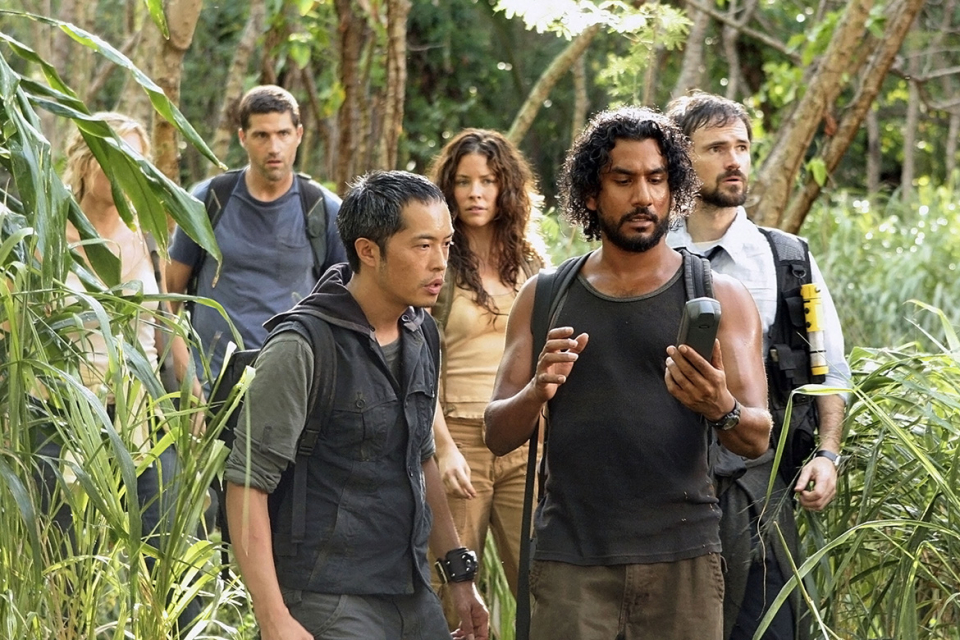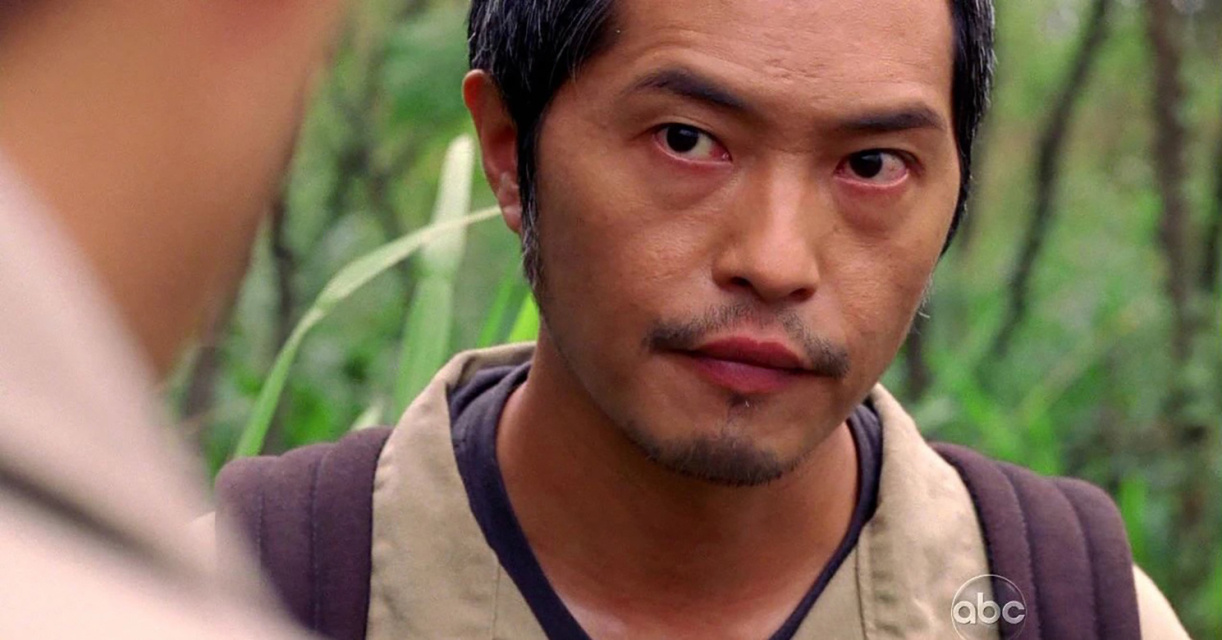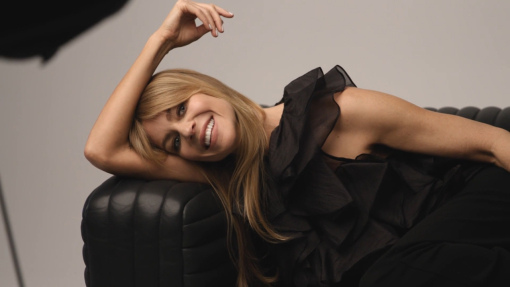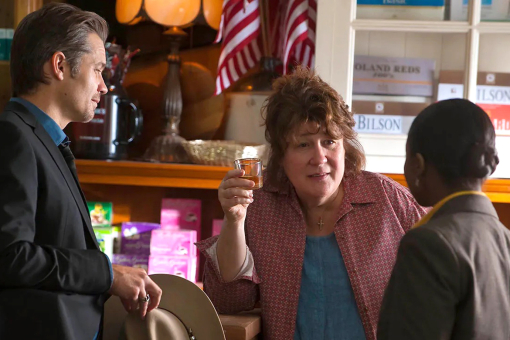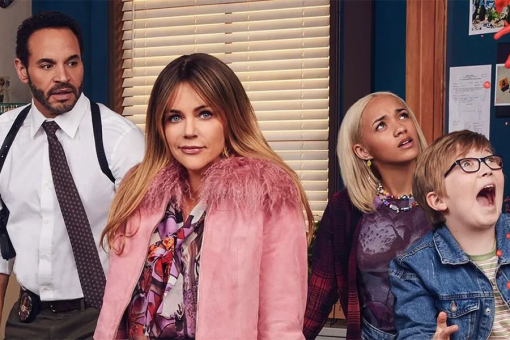"We just kind of got thrust into it."
That was the reality Industry star Ken Leung faced when he joined ABC's Lost in its fourth season, where the popular sci-fi drama about plane crash survivors struggling to make do on their mysterious (and Smoke Monster-inhabited) island was reaching one of its narrative peaks by introducing a new, smaller ensemble to the lead cast.
In May of 2007, Lost showrunners and executive producers Damon Lindelof and Carlton Cuse contacted Leung's agents about having the actor join the show following his appearance on a recent episode of The Sopranos, "Remember When," where he played mental patient Carter Chong. Soon after that call, Leung went from living in a "tiny" apartment in New York to the beaches of Hawaii to play Miles Strome, a sarcastic grifter who downplays his ability to communicate with the dead. Once on the island, Miles is forced to embrace his "gift" when he and several other enigmatic characters are sent on a mission by the wealthy and sinister Charles Whitmore (Alan Dale) in an effort to take back the island that Whitmore once called home. Some, like Miles, are on the island to help the passengers of Flight 815. Others are there to do, well, much worse. (We're looking at you, mercenary Keamy.)
For Leung — who has earned widespread praise for his performance as investment-bank executive Eric Tao on Industry — joining the cast of Lost was a figurative whirlwind experience, but also a very rewarding one. In this exclusive interview with the Television Academy to celebrate Lost's 20th anniversary, the actor revisits his time on the Emmy-winning series.
Television Academy: Were you a fan of Lost before you joined the fourth season?
Ken Leung: I had watched some of it, but I don't think I watched season three at all. I remember watching a lot of season one when it first came out. I was in Vancouver shooting something at the time, and my wife put it on. And I'm friends with Daniel Dae Kim, who played Jin on the show. I'd been friends with Daniel for years before Lost. We workshopped a play in New York at the Public Theater. So I've known him for a while. So it was cool to see him on the show. But I really loved that famous pilot episode.
Lost gives Miles his first big flashback episode with season four's "Some Like it Hoth," which dives deeper into the history of his "ghost whisperer" abilities. How much of his backstory did you know before joining the series?
None. I remember that first call with Carlton before I went over [to Hawaii] to ask him exactly that, to get a sense of what I was playing. And he said, "You know, just show up, be present, and let's just see how it goes." So, he was really vague but, in retrospect, I get it. They kind of made space for certain people and wanted to see what they brought. And depending on what they brought, they kind of wrote to that. And, we never saw [the writers or the showrunners]. The cast was in Hawaii, and the writers and the showrunners and producers were all in L.A. I remember reading the scripts and feeling like, "Oh, they're really watching what we are doing and what we are bringing to it," and so they catered to that in the stories.
How did you like working that way on a show with so many character-centric mysteries baked into the central conceit?
I really dug that. It was new. I'd never done anything that way before. But I knew next to nothing [about Miles]. I knew I had this power. Didn't really know what it was. I remember that episode you're citing, the first [flashback] one with Miles. Steven Williams was the director. While we were shooting that first flashback that revealed what gifts Miles had, I had the thought: "If he senses the dead, what does that mean? Is he hearing a voice? Is he talking to them?" And that didn't feel so right to me based on how it was written. So I kind of just did it; I closed my eyes and it came off as more of like some kind of meditative feeling. Like he was sensing the forces that were in the room.
And I remember Steven saying, "Well, we need to see something. You can't just do nothing."
So is that where Miles' eye twitch came from?
Yes. I thought about [Steven's note] and was like, "Well, what can they see?" And that morphed into a kind of possession. Like, maybe I took on the spirit that was in the room. And then if I took it on, how would you see that? And so, yes, it became this sort of eye-twitch thing — which was developed over the course of the series. That's how that came about; we needed to have something visual to show that it was happening.
Your character came in at a time when Lost was reaching its peak with season four. How challenging was it to join this rather massive and established ensemble of characters as a member of a smaller but significant ensemble cast within it?
It was really scary. I remember at the time, my driver's license expired. And, living in New York [City], I had no reason really to drive. I just had a license to have I.D., so I really didn't pay attention to when it had expired — but it had been expired for years. So, I had to retake a class and retake the test to get my license, it was a whole thing, so I could go to Hawaii. And I lived in this tiny studio apartment on East 5th Street at the time. Tiny. Like, hardly any place for a guest. So the idea of going to Hawaii — where I had never been — I had this image of just vast fields and waterfalls and, you know, some kind of paradise. But how was I going to get around? I'm a city creature, so I was really nervous. I was also in therapy at the time. And so all this stuff made me really nervous.
And when I got there, everyone knew each other and had been there for three seasons. So it took a while for me to kind of find my people. To find friends and feel like I belonged there. Even, like, with the press. I had really never done anything up to that point that required press, and suddenly I'm doing interviews. People are asking me, "Why should we watch Lost?" and "Who are you?" It was very overwhelming. But any problems you had, they felt like "high-class problems," you know? [laughs] You're on this massively popular show in the most beautiful place on Earth, so you have no problems. I found my way, eventually.
Did the show provide some sort of "boot camp" or rehearsal session for you and the other new cast members, so you could acclimate to the show?
No. We just kind of got thrust into it. I know I met Jeremy Davies [who played scientist Daniel Faraday] at our fitting. And we were both looking out at — there was this river running near where we were. There, I kind of sensed that he and I were in a similar place as far as nervousness. He was like, "Oh, how are you doing? How do you like being here?" And I was like, "I don't know. I feel a little out of place." And he was like, "Yeah, I kind of feel the same way." And so we bonded a little bit over that.
With all of the sci-fi and supernatural storylines that Lost was juggling, how challenging was it for you to balance the emotional geography of the character with the more "out there" aspects of the show's narrative?
I think they wanted us to kind of trust our instincts, not our intellect. Not our ability to plan or execute something that was rehearsed. They wanted something organically from us. And, well, I always feel that if you are trying for the audience, trying to tell this story, then the audience doesn't need you to quote unquote "succeed." An audience needs you to try — to really, really try — to be there and to really go for something. And once they see that that's happening, they're with you. They're going to go on the journey with you. They don't need you to reach a certain emotion. It's great if you do, but they don't need you to.
What they do need you to do is not lie to them. That's the thing that resonates. So, I've always felt kind of a comfort in that.
Miles and the rest of his team travel to and from the island via a helicopter that calls a barge off the coast of the island home. Did you ever physically go out to that barge?
No, that was docked. There are some establishing shots of a real barge at sea, but, no, the one we filmed on was docked. There was a canoe scene [in "The Little Prince"], where we are being chased by an outrigger on the ocean. That canoe tipped over one day. Jeremy had a boom box or a radio or something he used to play music. He would bring it with him everywhere. And that went overboard that day.
Terry O'Quinn told me that he took some of his character's knives with him when the show ended. Do you have any props?
I have a can of Dharma beer that I never opened until years later, much to my regret. Yeah, it [tasted] disgusting. But now it's empty and cleaned up.
I also took the roll of duct tape that my character had, but I gave it to someone as a housewarming gift. I put it in this kind of presentational box, and I gave it to somebody who was opening a performance space.
Before Lost, one of your most memorable roles was in the Tom Cruise movie, Vanilla Sky, directed by Cameron Crowe. I have to ask: What was your experience like working with Cruise? I
t was great. Tom Cruise is super friendly. He made this immediate imprint that he was so accessible. Even though I had a really tiny role, he didn't make it feel that way. If you happened to walk by him, he would stop you to say hello or introduce you to whomever he happened to be talking to. He made you feel like you belonged there.
But I do want to share one last thing about Lost — I don't really ever get a chance to share this story.
Please do.
It's kind of a life-changing story. And, as I mentioned to you, I really wasn't comfortable giving interviews. I'm much more comfortable now. But, back then, I didn't know if I was saying the right thing. Sometimes, when people ask questions, they're not really asking that question. They just want to kind of prompt you to talk about anything, so I was unsure what the rules were. That's just how it felt, if that makes sense. So, that made me feel really uncomfortable. And, for the final season of Lost, they had this big "everyone's going to have a one-on-one final season of Lost interview." And I was like, "Oh, no, this is one I can't say 'no' to."
I remember they had this beautiful setup at a fancy hotel. It was out in the lawn, with tents and stuff, and it was my day to do the interview. So, I went into the waiting room and [costars] Jeff Fahey and Nestor Carbonell were there. I was like, "Oh, I guess it's their day to do an interview, too." And they knew it was no secret how I felt about interviews. So when it was my turn — the three of us went out onto the lawn and suddenly, I was like, "Oh, I thought it was [going to be] a one-on-one. I guess this time, they're going to do the three of us. Great! I don't have to be all alone. We're doing a three-person interview."
So, we go out there, and Jeff was like: "Okay, Ken? You sit here, in the center. I'll sit here, and Nestor will sit there." When I sat down, I noticed the camera was only pointing at me. And the interviewer was just looking at me. And I was like, "Wait a second. What are you guys doing here?" And Jeff was like, "We're here for you. We know how you hate this. We know how you're scared of it. And we didn't want you to be by yourself."
It's one of my favorite memories of working on the show, that has nothing to do with the show itself per se. That type of kindness, it's just one of the most beautiful gifts that anyone could do for you. I'll never, ever, ever forget that.
Lost is streaming on Netflix and Hulu.



